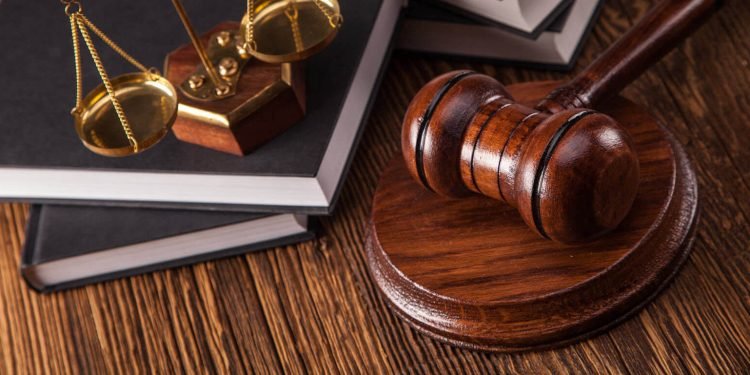ON 09 SEPTEMBER 2013.
The past few years have seen the increased adoption of electronic documents by banks, private industry and Government. If you are “with it”, you probably get your bank statements, satellite TV and Telkom invoices electronically.
If South Africa’s Draft Broadband Policy, published for comment in April 2013, is finalized and implemented, we are all going to be spending much more time transacting and interacting electronically. This is especially since the policy “advocates for the implementation of strategies to provide amongst others, e-health, e-education and e-government services to all citizens.”
Whilst these developments are exciting, many will agree that some of South Africa’s laws are out of step with the Broadband policy’s plans to take us all electronic.
Take the Financial Intelligence Centre Act’s requirements for banks and other institutions to “know your client”. Part of this obligation entails keeping “a document [i.e. the original] or copy of a document” which will allow these institutions to verify their clients’ identities.2
What do you do if you are a commissioner of oaths and are asked to certify a paper printout as a true copy of, for example, a company registration certificate that the Companies and Intellectual Property Registration Commission (“CIPC”) has emailed through?3
The Electronic Communications and Transactions Act, 25 of 2002 (“the ECT Act”) is probably the most helpful place to get guidance. It recognises that an electronic document can also be an original. Section 14 provides as follows:
(1) Where a law requires information to be presented or retained in its original form, that requirement is met by a data message if-
(a) The integrity of the information from the time when it was first generated in its final form as a data message or otherwise has passed assessment in terms of subsection (2); and
(b) That information is capable of being displayed or produced to the person to whom it is to be presented.
(2) For the purposes of subsection 1 (a), the integrity must be assessed-
(a) By considering whether the information has remained complete and unaltered, except for the addition of any endorsement and any change which arises in the normal course of communication, storage and display;
(b) In the light of the purpose for which the information was generated; and
(c) Having regard to all other relevant circumstances.
As a commissioner of oaths, when certifying a copy of an original document, you are essentially required to attest that the copy is “a true copy of the original”. There are serious consequences if you certify a copy of a document when the “original” was not really an original. So, when it comes to certifying printed copies of electronic documents, following the provisions of section 14 of the ECT Act will go a long way to keeping you out of trouble.
In order to certify that a printed copy is a true copy of the original you need to have seen the original document.4 Insofar as electronic documents are concerned, the ECT Act requires you to satisfy yourself as to the authenticity of the original electronic document.
You need to check and be sure that the original electronic document is “complete and unaltered”. This means that you have to satisfy yourself that the printed copy that has been presented to you is an exact copy of the electronic original. Here are three scenarios that may help you to decide whether to certify a printed copy or not.
· If you are with the person and they log onto the CIPC website (or their banking website to use a different example) with you watching and request the CIPC to email the required document or the document is downloaded from the CIPC website and you witness the receipt or downloading of the document, then you would certainly be beyond reproach if you certified the printed copy as being a true copy of the original.
· If you are with the person and they open their laptop, show you an email with a PDF attachment reflecting what they claim is a CIPC document and print it in your presence, you should be wary of certifying the printed copy. This is because, given the proliferation of PDF editing software that is now available, there is always the possibility that the document could have been altered before the “original” electronic version was presented to you.
· Assume a person opens their laptop and shows you an original electronic document. They then demonstrate to you that the original electronic document has been authenticated or is capable of being authenticated by an advanced electronic signature (as provided for at section 37 of the ECT Act). If you are sufficiently technologically savvy and are not likely to be bamboozled, you may be able to satisfy yourself as to the authenticity of the advanced electronic signature and confidently certify the paper copy of the original.
In deciding whether or not to certify a copy of an original electronic document, you should pay heed to the other two assessment requirements under section 14 (2).
These are that you consider the “purpose for which the information was generated” and “all other relevant circumstances”. In essence, this means that you should consider the big picture and decide whether in a multimillion Rand transaction you are prepared to stick your neck out and certify a copy of an electronic original, when you are not reasonably confident of its authenticity.
In closing, and in the event that you are satisfied as to an original electronic document’s authenticity, it would probably be prudent to certify it by stating the following “certified a true copy of the original, having observed the original being downloaded from the CIPC website on 30 May 2013 at 14h00” or “certified a true copy of the original, having satisfied myself as to the authenticity of the advanced electronic signature displayed on the original”. Following these basic precautions are certain to keep you on the correct side of the law, when certifying printed copies of electronic documents.
LUCIEN PIERCE
PHUKUBJE PIERCE MASITHELA ATTORNEYS
1 The Draft National Broadband Policy for South Africa – paragraph 2.3.6.3.6.
2 The Financial Intelligence Centre Act, – section 22(1)(i).
3 We have not explored the legislation and regulations governing justices of the peace and commissioners of oaths in any detail. Having conducted a high level review, it appears that there is a grey area regarding the authority governing how commissioners of oaths certify copies of original documents. This may merit further analysis.
4 The ECT Act requires the original to be “capable of being displayed or produced to the person to whom it is to be presented”, i.e. a person commissioning a copy must have been able to see the original electronic version.


















